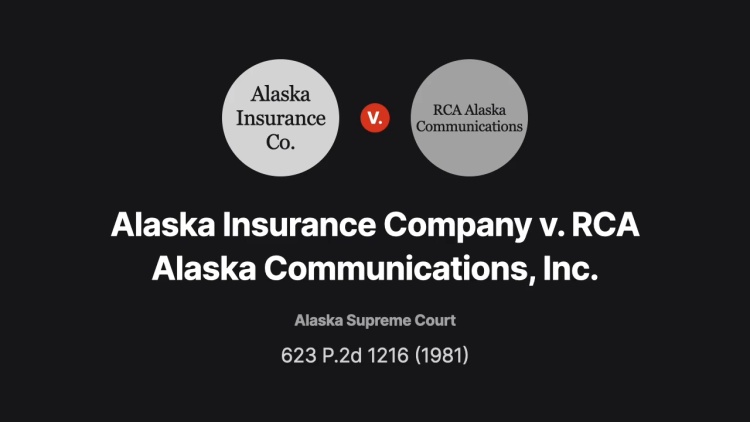Alaska Insurance Company v. RCA Alaska Communications, Inc.
Alaska Supreme Court
623 P.2d 1216 (1981)
- Written by Genan Zilkha, JD
Facts
Bachner Rental Company, Inc. (Bachner) purchased a three-year fire insurance policy from Alaska Insurance Company (AIC) (plaintiff) for four commercial warehouses. Bachner then entered into a one-year commercial lease with RCA Alaska Communications, Inc. (RCA) (defendant) for one of these warehouses. RCA’s name was not added as an additional insured to Bachner’s policy with AIC. RCA did not independently obtain fire insurance for this warehouse. The lease between Bachner and RCA contained a clause that stated that RCA would be liable for damages arising from RCA’s direct negligence or the negligence of RCA’s employees. The lease also contained a clause stating that RCA would indemnify Bachner for damages caused by RCA. Bachner was required by the lease to obtain and maintain insurance for the leased premises. After RCA was in possession of the warehouse, there was a fire. The warehouse was damaged and later destroyed. AIC paid Bachner for the loss. AIC then filed suit against RCA as a subrogee, claiming that RCA, through its employee, had negligently caused the fire. RCA moved for partial summary judgment against AIC on the basis that RCA was an implied insured of AIC under Bachner’s policy. As a result, AIC could not seek reimbursement for damages to the warehouse caused by RCA. The superior court granted RCA’s motion for partial summary judgment. AIC appealed.
Rule of Law
Issue
Holding and Reasoning (Connor, J.)
What to do next…
Here's why 907,000 law students have relied on our case briefs:
- Written by law professors and practitioners, not other law students. 47,100 briefs, keyed to 996 casebooks. Top-notch customer support.
- The right amount of information, includes the facts, issues, rule of law, holding and reasoning, and any concurrences and dissents.
- Access in your classes, works on your mobile and tablet. Massive library of related video lessons and high quality multiple-choice questions.
- Easy to use, uniform format for every case brief. Written in plain English, not in legalese. Our briefs summarize and simplify; they don’t just repeat the court’s language.





